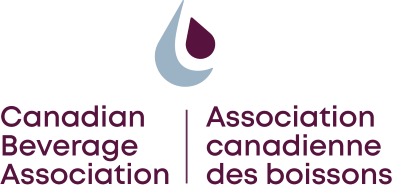Canadian Beverage Association statement regarding University of Waterloo report on beverage tax in Canada
-- Report findings do not reflect Canadian marketplace --
TORONTO, March 16, 2017 /CNW/ - In response to the report released today, The Health and Economic Impacts of a Sugary Drinks Tax in Canada, the Canadian Beverage Association issued the following statement:
Fiscal interventions like consumption taxes have not proven to be successful in terms of obesity reduction. What works are real, meaningful, coordinated efforts by government, industry, and healthcare and consumer stakeholders to implement evidence-based solutions.
Sound public health policy must be based on the most substantive, rigorous sources of research available. The report findings, however, are based on data that do not reflect the Canadian beverage marketplace. The data set from Euromonitor used in the analysis for this report included non-diet carbonated beverages, along with whole-category volumes (both low calorie and full calorie) for other beverage categories. All of these beverage categories would include some percentage of reduced-calorie varieties, and therefore the reported findings do not reflect the Canadian beverage marketplace, where more than 45% of beverages purchased are no- or low-calorie.
By contrast, The Conference Board of Canada: Balance Calories Baseline Report, organized all beverages into full calorie and reduced calorie categories to reflect the beverages available on store shelves in Canada. The Conference Board report concludes that daily per capita calories consumed through liquid refreshment beverage (LRB), which includes all non-dairy, non-alcoholic beverage categories such as 100% juices, energy drinks, sports drinks, iced teas, etc…, have declined by 20% per capita between 2004-2014. Canadians consume 141 calories from LRB, well under 10% of daily calorie recommendations. In the report released today, if calorie-reduced varieties are excluded, per capita net volume of all non-diet beverages (including flavoured dairy, drinkable yogurts and 100% juices) is 350 ml/day, or about 150 calories/day.
Through the industry-led Balance Calories initiative, Canada's leading beverage companies have set a goal to reduce beverage calories by a further 20% by 2025, an objective that cannot be achieved through projected trends alone.
Regarding the model projections used in the University of Waterloo report, the authors assume a relationship between taxation and lower body mass index. While the beverage industry supports efforts to address serious obesity and obesity-related diseases, it is illogical to isolate one single ingredient or product as a unique contributor. Experts, including Health Canada, agree that the factors associated with these issues are complex, and include overall health behaviours, and broader social, environmental and biological determinants.
As an industry, we understand we have a role to play in the health of Canadians. We can all work together on solutions for overconsumption, while respecting that for Canadians, LRB calories and sugar from beverages are declining. Canadians continue to consume fewer calories, and calories from sugar, from refreshment beverages than they did in 2004.
The Canadian Beverage Association and its members encourage continued dialogue and a collaborative effort between industry, health organizations, and public officials to develop holistic workable solutions to create lasting change for Canadians.
The Canadian Beverage Association is the national trade association representing the broad spectrum of companies that manufacture and distribute the majority of non-alcoholic refreshment beverages consumed in Canada. For more information, visit: balancecalories.ca and canadianbeverage.ca
Please click here for additional background, context, and citations
SOURCE Canadian Beverage Association

For media inquiries, please contact Carolyn Fell at 416-362-2424, [email protected]

Share this article